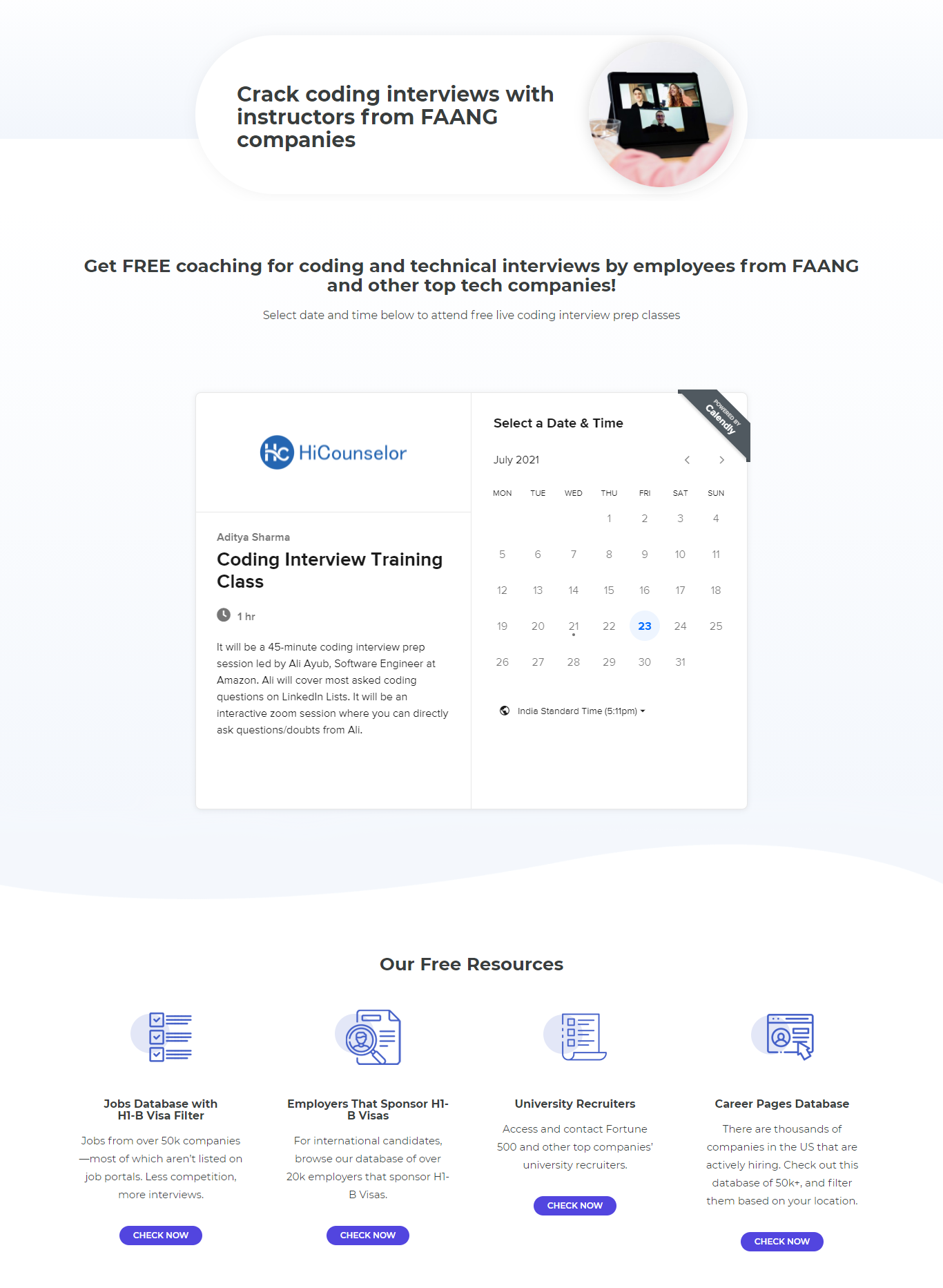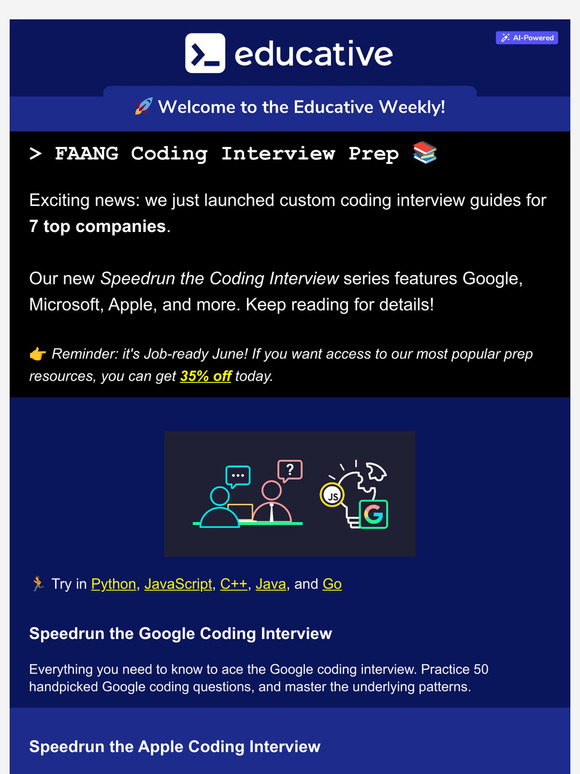All Categories
Featured
Table of Contents
I have tried to pass meetings at FAANG business 3 times. Each time, I boosted the amount of time I invested preparing for the interview. Throughout the years, I have checked out and enjoyed a lot of details pertaining to speak with prep work. In this article, I intend to cover several of the elements which I found useful in my journey.
This is close to real, but it is something that we can not transform, and we can just adjust to it. This post will certainly be interesting for engineers of all degrees. Luck is a vital element of any meeting. It's like a game of Baldur's Entrance 3 where every single time you roll the die, you can have an essential fall short and stop working any type of feasible meeting.

Maybe they have already selected an additional prospect and your meeting is just a part of the process which they can not miss. Rejection is a normal part of the meeting procedure.
Prep work is an essential facet for passing the interview process at a high level in top business. I am nearly specific that the average FAANG designer that has worked for even more than 10 years can not pass the interview process of their firm without preparation.
Who offers flexible Data Science Skills solutions?
In one of my previous companies, I was a recruiter for 4 years with more than 200 interviews. I commonly asked candidates regarding their preparations, formulas, and LeetCode troubles. I used this expertise to adjust the first job for a candidate. In truth, if a prospect did not prepare for the interview, they had a tiny possibility to pass the meeting on a medium+ degree, even if they had one decade of experience.
Because if they found out something 5-10-15 years back and did not use it, they only remembered the top-level theory - systems design interview prep. So, it is far better to plan for the interview. Additionally, as a part of preparation, it is vital to understand the requirements of firms. Different firms have different sections, tasks, and concentrates, and it is better to locate this details.

It is an incredibly essential topic for me as a non-native speaker. Previously, I check out that a great level of English is trivial for the interview procedure. Not precisely. Yes, you have an opportunity to pass the meeting with negative English, yet you significantly lower your possibility to pass it.
What is Interview Roadmap?
All of this requires communication and the capability to understand what the job interviewer states. Once, I had a problem with a job that utilized the word "produce" in its summary.
Can you comprehend this aid? In fact, it is a 35-minute presentation. The core part of this meeting is your ability to offer your concept to the recruiter. If the job interviewer recognizes your concepts, and you locate the primary case, you will certainly pass the interview. Also, present yourself. You need to be able to speak about your experience, your jobs, your group, and so on.
One business did not offer me a job due to the fact that I often stammered in my responses to the manager. I passed all various other meetings in this business with excellent feedback, yet the manager wasn't certain if I would communicate efficiently in a team. Overall, your English degree may develop troubles for you and for the job interviewer:: For you - you spend a great deal of energy talking.
How long does Coding Interview Questions preparation last?
For the job interviewer - they invest additional power to recognize you, and when they can not comprehend you, they may make a choice that you are not suitable for that duty (job prep coding practice). What benefit me: A whole lot of sessions with my English educator. I have had 2-3 sessions each week for the last 5 years
An English teacher can additionally assist you with the behavior component of the meeting. It's worth spending cash on an excellent microphone due to the fact that the recruiter will certainly spend much less energy on understanding you.
When possible, I switch to English. Also, this blog site is a component of my effort to enhance my writing abilities. Business are different. I can split them right into a minimum of 3 degrees (it isn't a complete list): Degree 1 - Large tech companies like Meta, Google, Apple, and Microsoft. They often have a name FAANG or MANGO (a brand-new one).
Level 2 - Smaller sized firms that have an excellent item and pay well. Level 3 - Tiny good firms that do not pay as much as huge tech.
Software Engineering Interview Prep
Due to the fact that one of the most amount of people try to pass interviews in degrees 1 and 2, they have many individuals intending to be interviewed. As a result, they enhance the intricacy of their interview to filter individuals. Degrees 3-4 typically do not have intricate interviews, and the process could have just 1-2 steps.
They have coding sections where they anticipate you to compose a for loophole and carry out easy operations like enhancing or multiplying numbers. Every time, I was puzzled at initially since I didn't anticipate it to be so easy. machine learning interview.
It is intriguing to keep in mind that different business have various checklists of points. One company anticipates you to cover all edge situations in your code, while another expects you to drive system style meetings.
Level 3 and 4 - generally, they do not have added materials for the meeting, and it is difficult to find experience from various other candidates. In my experience, I have had interview processes for three various duties: Frontend function, Backend duty, and Full-stack function.
Latest Posts
How To Write A Cover Letter For A Faang Software Engineering Job
How To Prepare For Amazon’s Software Engineer Interview
10+ Tips For Preparing For A Remote Software Developer Interview